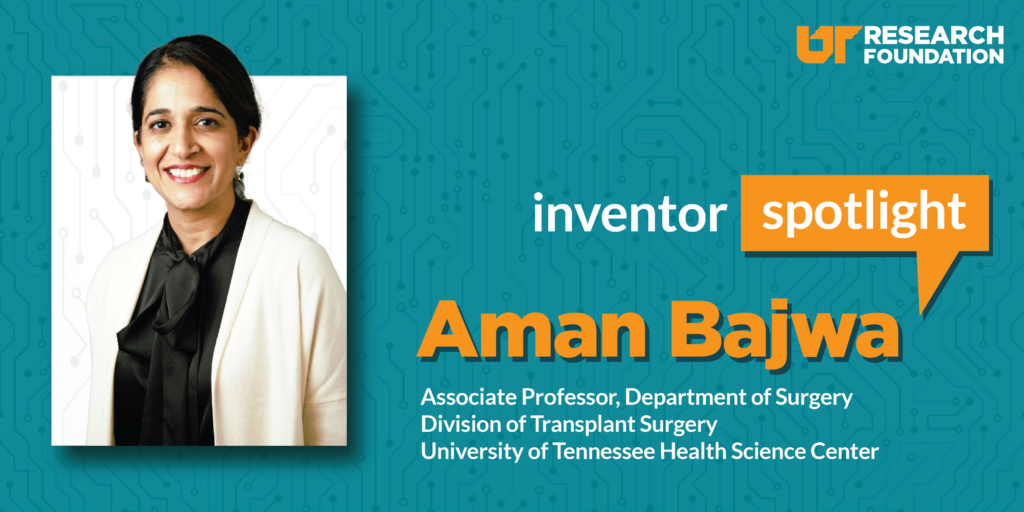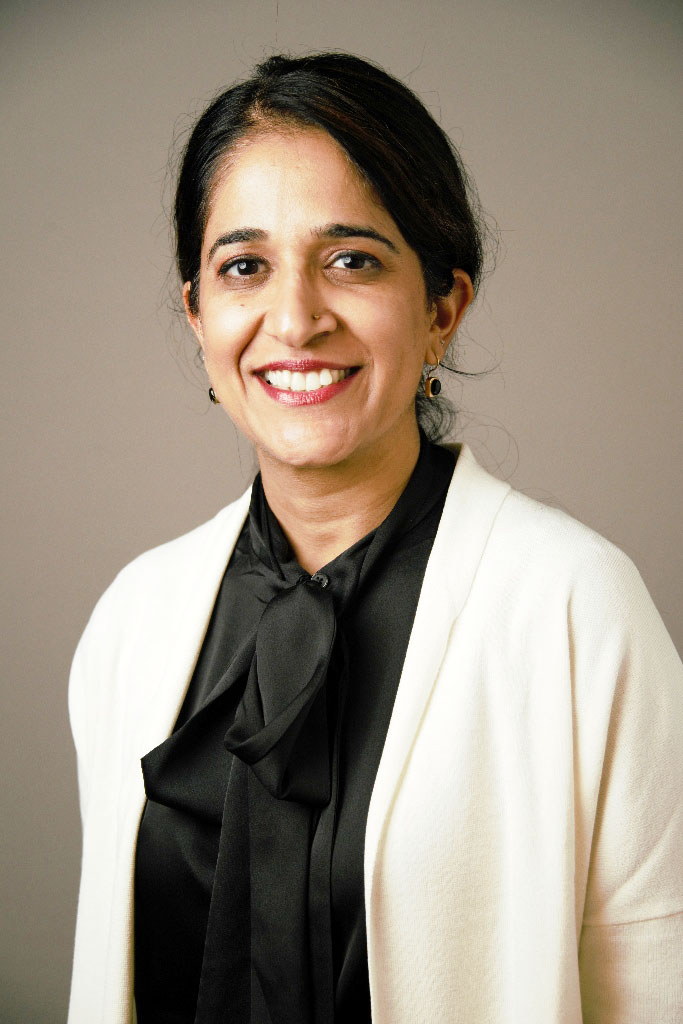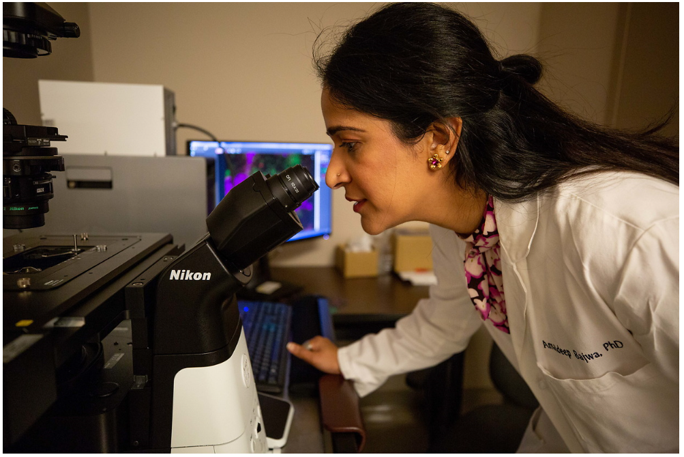Leveraging mitochondria as a next-wave therapeutic

What if physicians could use membrane-bound cell organelles as therapeutics to treat a variety of conditions ranging from kidney problems to heart disease?

Aman Bajwa, associate professor in the Department of Surgery, Division of Transplant Surgery, and group leader of James Eason Transplant Research Institute at the University of Tennessee Health Science Center, seeks to accomplish just that through her work in mitochondria therapy (mitotherapy) as it relates to acute kidney injury.
“Historically, no one has thought to use mitochondria as a medicine because it’s simply part of who we are,” said Bajwa. “It’s what sustains life in us. It eats glucose and makes energy.”
The University of Tennessee Research Foundation and Bajwa are working to determine next steps for her innovative work. Bajwa is grateful to the UTRF team, especially to Staff Attorney James Parrett, for helping her understand the potential of her research.
“James has been instrumental in teaching me what the business side of science looks like,” said Bajwa. “He advises me. Without him, I would have lost a lot of opportunities.”

Bajwa’s ultimate goal is to bring her work into clinical practice. Currently, her lab is streamlining the isolation process for mitochondria and testing the feasibility of her research in larger animal models. Currently, Bajwa’s team isolates mitochondria for other laboratories on Mondays – a day they have nicknamed “MitoMonday.”
“It’s been a pleasure to work with Bajwa to help advance her ideas out of the lab and into the market,” said Parrett. “UTRF is dedicated to promoting an entrepreneurial culture at the university for all faculty and staff. We look forward what the future brings with Bajwa’s research.”
Bajwa entered this line of research after coming across the work of James McCulley of Boston Children’s Hospital. McCulley published several papers about mitochondria transplant, primarily focused on the heart. Taking a chance, she reached out and visited his lab to learn the basics about isolating mitochondria.
“He is a giant, a pioneer in this research. I am just a junior principal investigator. His help was instrumental in getting my first NIH grant funded” said Bajwa. “I have not had one specific mentor for my work. I’ve always gone to neighboring labs or departments when I didn’t have access to enough resources. I think this is what has led to some of my success so far.”
Like her current work in mitotherapy, Bajwa has always been driven by the momentum of innovation and discovery, even when the way forward seems uncertain or challenging. To maintain this momentum, Bajwa prefers to work in her laboratory as much as possible, which involves activity doing surgical work and helping students with experiments.
“Every single success I’ve had, it’s because of a mistake I personally made in the lab that led to a question that led to an experimental design that resulted in papers or grants,” she said. “I’m trying to instill that mentality in my lab where I encourage every person to make mistakes, because that’s how you learn.”